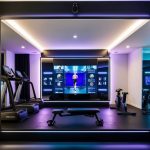The Latest in Wearable Technology: Innovations Shaping the Future
Wearable technology continues to evolve rapidly in 2024, with significant advancements capturing the attention of tech enthusiasts. Smartwatches now offer more than just fitness tracking and notifications, boasting advanced health monitoring features such as ECGs and stress level measurement. These devices are becoming indispensable tools for those looking to stay on top of their physical well-being without the need for bulky equipment.
Fitness enthusiasts aren’t the only ones reaping the benefits. The integration of augmented reality in smart glasses has taken a leap forward. Industries like manufacturing, healthcare, and logistics are seeing practical applications that enhance productivity and improve safety on the job.
In addition, wearable technology is becoming more integrated with AI, making these devices smarter and more intuitive. From personalized recommendations to real-time health insights, the latest wearables are designed to provide users with a more immersive and interactive experience. This trend toward more intelligent, user-centric devices illustrates the growing importance of wearables in daily life.
Evolution of Wearable Devices
Wearable technology has rapidly evolved from simple step counters to complex health monitoring systems. It now plays a critical role in personal health and fitness management.
From Fitness Trackers to Smartwatches
The journey began with fitness trackers like Fitbit that primarily monitored steps and basic activity. Over time, these devices integrated more sophisticated health metrics, such as heart rate, sleep patterns, and calorie consumption. As technology advanced, smartwatches emerged, offering a blend of fitness features and smart functionalities.
Smartwatches, such as those from Apple and Samsung, include features like GPS tracking, ECG monitoring, and even blood oxygen level measurements. These devices not only track fitness but also provide notifications, apps, and even mobile payments. The line between a fitness tracker and a smartwatch continues to blur, with smartwatches increasingly dominating the market.
The Rise of Smart Rings and Health-focused Wearables
Smart rings, like the Oura Ring, mark another significant evolution in wearables. They offer a more discreet way to monitor health metrics such as sleep quality, heart rate variability, and activity levels. These devices provide valuable insights without the bulk of a smartwatch or fitness tracker.
Health-focused wearables are expanding beyond traditional metrics. Companies are developing devices that can monitor stress levels, hydration, and even blood glucose levels. These advancements enable users to gain a comprehensive picture of their health, making personalized health management more accessible and effective.
Wearable technology is becoming integral to daily life, offering a seamless way to stay informed about one’s health and fitness.
Health and Wellness Advancements
Recent advancements in wearable technology have significantly enhanced the ability to monitor heart rate, blood pressure, sleep patterns, and mental health. These devices are becoming indispensable tools for maintaining health and wellness.
Monitoring Heart Rate and Blood Pressure
Wearable devices now offer precise heart rate monitoring and blood pressure measurement. These features provide real-time data, which can be crucial for individuals managing cardiovascular health.
Devices such as smartwatches and fitness trackers employ photoplethysmography (PPG) sensors to measure heart rate by detecting blood volume changes in the wrist. Additionally, some wearables incorporate cuffless blood pressure monitors that utilize optical sensors and advanced algorithms to offer accurate readings without the need for traditional blood pressure cuffs.
Access to continuous heart rate and blood pressure data enables users to detect irregularities and seek medical attention promptly. The incorporation of these health metrics into daily life supports better management of chronic conditions and promotes overall wellness.
Sleep Tracking and Mental Health
Modern wearables offer comprehensive sleep tracking features that analyze sleep stages and durations. These insights help users understand their sleep patterns and make necessary adjustments for improved rest. By utilizing accelerometers and heart rate variability sensors, these devices can determine light, deep, and REM sleep phases, providing a detailed sleep score each night.
Mental health monitoring is another critical feature in current wearables. Some devices track stress levels by measuring heart rate variability and integrating it with other body signals. This data helps users identify stress triggers and adopt relaxation techniques. Wearables can also track physical activity and mindfulness practices, offering a holistic view of mental well-being.
The synergy between sleep tracking and stress management underscores the efficacy of wearable technology in enhancing mental health. By providing actionable insights, these devices empower users to create healthier lifestyles.



